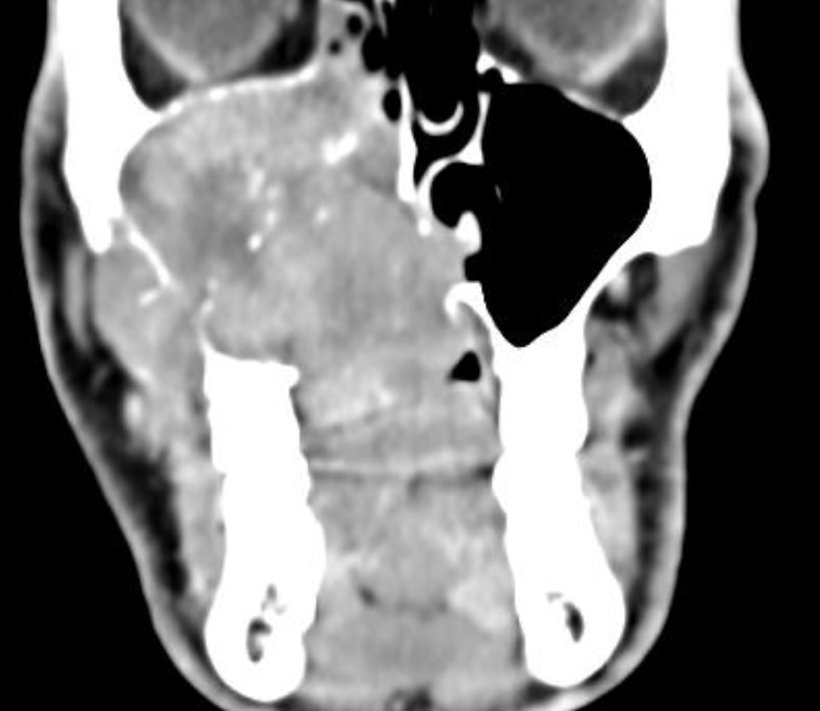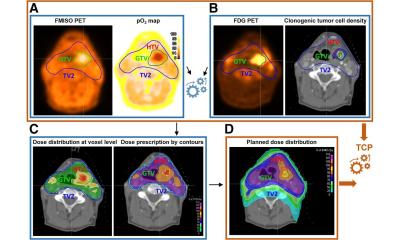
Image source: Dudde et al., Oncoscience 22023 (CC BY 3.0)
News • Adenoid cystic carcinoma
Treatment strategies for head and neck cancer
In a new editorial paper, researchers Florian Dudde, Kai-Olaf Henkel and Filip Barbarewicz from the Army Hospital Hamburg discuss treatment strategies for head and neck tumors.
The paper was published in Oncoscience.
In this anatomical region, squamous cell carcinoma (SCC) is the most common malignant entity. However, there are also other malignant tumors that, unlike SCC, originate in the salivary glands of the head and neck region, such as mucoepidermoid carcinoma or adenoid cystic carcinoma (ACC).
Proton therapy, as a special form of radiotherapy, seems to have decisive advantages with regard to the long-term survival of this highly malignant tumor originating from the small salivary glands
Dudde et al.
In general, tumors originating from the minor salivary glands often show a higher degree of malignancy than tumors of the major salivary glands (parotid gland, submandibular gland, sublingual gland). Consequently, the ACC in particular is often localized in the area of the hard palate (small salivary glands). In rare cases, ACC has also been described in other regions of the head and neck region, such as the paranasal sinuses or the tongue. “In principle, ACC grow slowly and consequently often cause a lack of clinical symptoms,” the researchers point out.
Their perivascular and perineural growth pattern can present therapeutic challenges, particularly in the head and neck region. The treatment of ACC in the head and neck region consists of surgical tumor resection with subsequent neck dissection and one- or two-stage plastic defect reconstruction. Severe ACC often require adjuvant radiotherapy. “Proton therapy, as a special form of radiotherapy, seems to have decisive advantages with regard to the long-term survival of this highly malignant tumor originating from the small salivary glands.”
Source: Impact Journals LLC
08.08.2023





